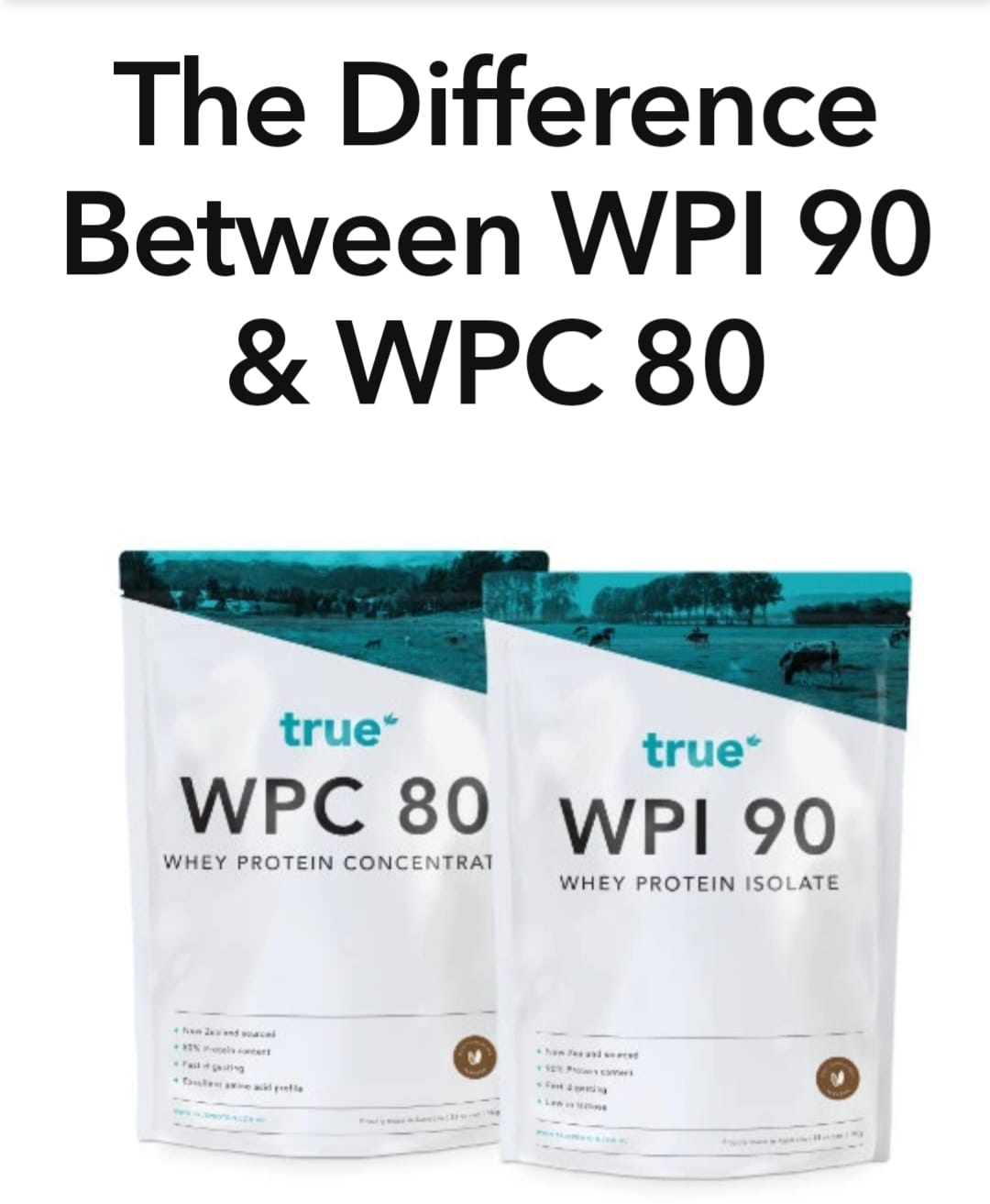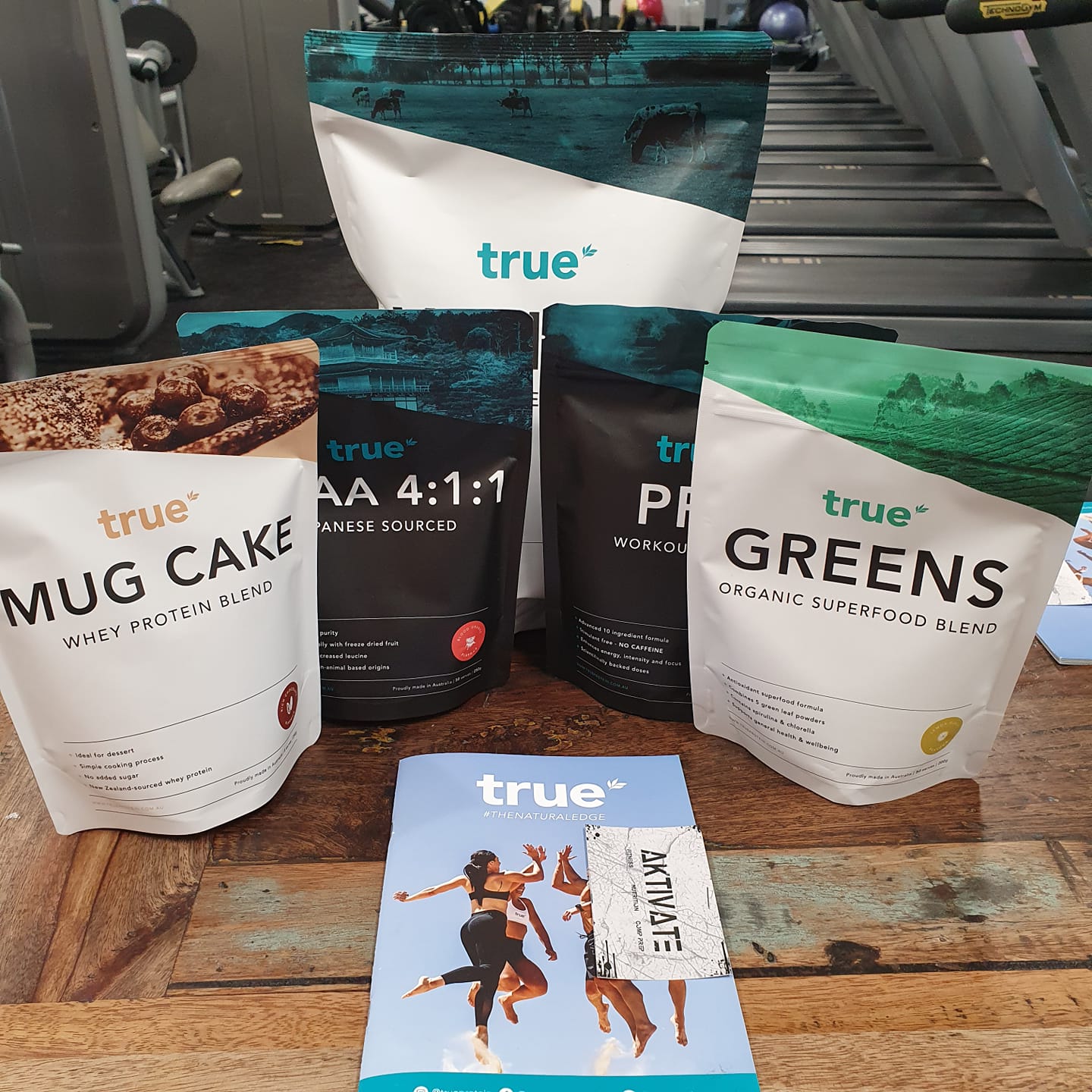
Difference Between WPI 90 and WPI 80
One of the most commonly asked questions we get at True is ‘what’s the difference between whey protein isolate and whey protein concentrate?’ While the differences are subtle in terms of protein content and health benefits, there are a few things to consider before deciding which product is right for you.
What is whey protein and how is it made?
WPC 80 and WPI 90 have the exact same beginnings. The key difference is that WPI goes through an extra step of filtration to achieve further refinement, thus giving it a higher protein content.
Whey is one of two protein compounds found in cow’s milk – the other being casein. To make a protein powder, first, the whey must be separated from the casein. This is achieved by adding special enzymes to heated milk, causing the casein in the milk to coagulate and form curds. Once the liquid whey has been separated from the curds it goes through a filtration process to strip it of much of its fat and lactose content. It is micro-filtrated to become WPC 80 and goes through a further ultrafiltration process to make WPI 90. These filtered liquids are then evaporated and dried to become pure protein powders, which is how they arrive at True Protein HQ, where we blend them with all-natural flavours.
The raw protein is a neutral-tasting powder that is composed almost entirely of protein compounds. It is rich in nutrients and contains all nine essential amino acids, which are renowned for their ability to trigger muscle protein synthesis and protect muscles from breakdown, as well as being critical to our overall health.
WPC 80 vs WPI 90
Protein Concentrate
Unlike WPC, WPI undergoes an extra step of filtration that strips away almost all of the fat and lactose content. While both WPI and WPC are rich in protein and amino acids, WPI is left with a higher concentration of protein (WPI is 90% whilst WPC is 80%). This makes it one of the purest sources of protein available, as there is little room for other components like fats and carbohydrates.
Lactose Content
As WPI has gone through a further ultrafiltration process, it contains less fat, carbohydrates and lactose than WPC. The minimal traces of lactose in whey protein isolate make it easier on the stomach, providing a more suitable option for those who are sensitive to or mildly intolerant of dairy products.
Absorption
Both formulas are ‘bioavailable’, which means they are easily absorbed by the body to produce better results. However, in general terms, WPI can be digested and utilised by the body faster than WPC due to its minimal lactose content. This can vary from person to person and usually depends on how well someone tolerates dairy.
Taste
True WPI 90 and WPC 80 are available in a wide range of delicious natural flavours – there’s something to suit every taste! Our protein powders are naturally sweetened with stevia and flavoured with only the best all-natural ingredients sourced from around the globe, from real vanilla beans and raw organic cacao to manuka honey and freeze-dried fruits. All of True’s products are filtered to have superior solubility resulting in the smoothest, tastiest shakes with only genuine health benefits.
In terms of difference in taste, you will find WPC produces a creamier, frothier shake due to its higher dairy content. WPI, on the other hand, produces a thinner consistency and is less creamy though still full-bodied in flavour. We recommend adding approx. 150-200ml cold water or milk of your choice to your shaker before adding one scoop of powder. Shake liberally for 10-20 seconds before enjoying.

True proteins and supplements sold by our PT Karen: www.aktivate.com.au
Contact
Email: info@aktivate.com.au
Phone: 0416230531






